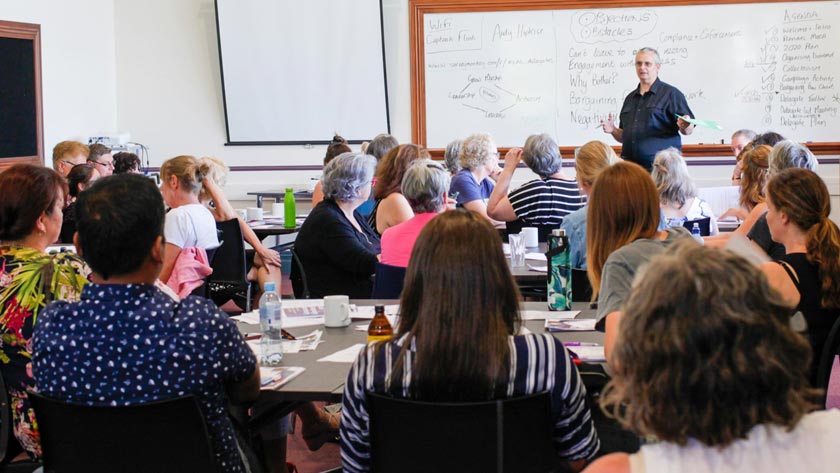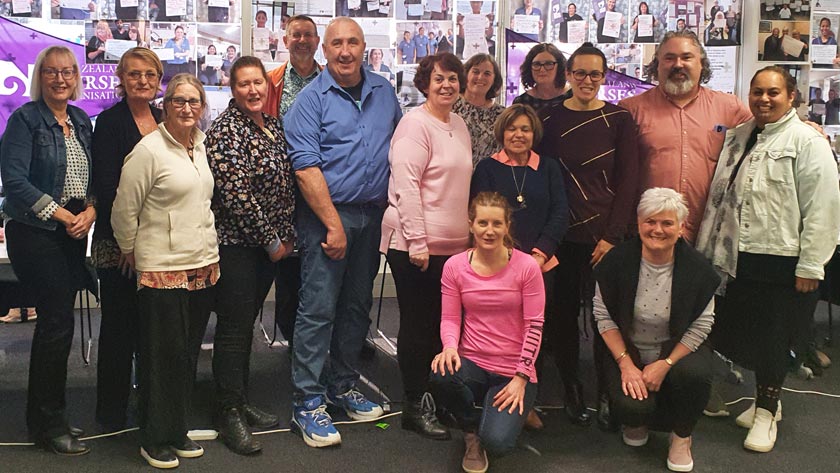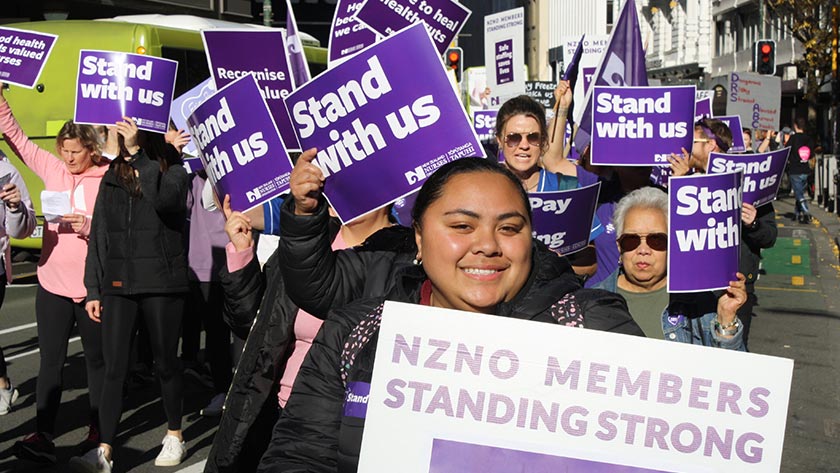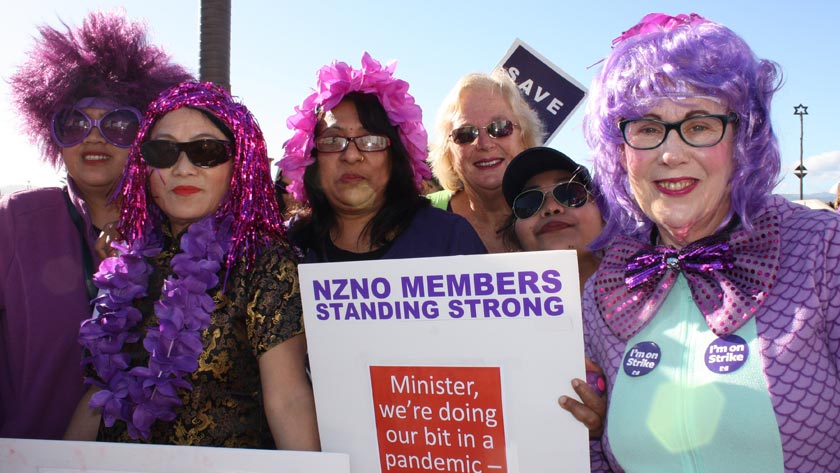
Planning for the campaign started in late 2019, with a series of meetings to hear how delegates wanted to see the campaign run. From those meetings and the recommendations that came out of the review of the previous multi-employer collective agreement (MECA) campaign we designed our campaign.
Starting as we meant to go on, we kicked off with delegate-run claims meetings, where delegates led discussions with members about what we should focus on for this MECA. Part way through, these were interrupted by the first COVID-19 lockdowns, and we supplemented the delegate meetings with an online claims survey.

There were three key issues: sick leave when we needed it; pay that valued our work and DHBs being accountable for unsafe staffing situations.
With our claims prepared and bargaining team endorsed by members, we took 63 claims into negotiations. There were three key issues: sick leave when we needed it; pay that valued our work and DHBs being accountable for unsafe staffing situations. Matters came to a head when members reacted strongly to the DHB offer in March, with the vast majority indicating that they would reject this offer if it was presented for ratification.
Delegates ran a series of member meetings in early May to discuss our next steps and members subsequently voted overwhelmingly for strike action. Although members had become increasingly engaged in the campaign, the strike was the moment when we all pulled together with a unity of purpose.
Ahead of the strike more members came forward and were elected as delegates. Existing senior delegates took leadership roles in life-preserving services (LPS) negotiations alongside NZNO staff – particularly our organisers, many of whom worked a great deal of additional hours to keep things on track, while also preparing for strike day.

Behind the scenes, Glenda Alexander, manager of industrial services and Kate Weston, acting professional services manager, held the line on the agreements we would make around LPS. These ultimately resulted in a legal victory for NZNO when the DHBs challenged our views.
It was clear that we were a force to be reckoned with and the pressure this brought to the negotiations provided new impetus to reach an agreement.
The strike was an opportunity to show our strength and determination to resolve our staffing and pay claims. Members walked off the job together, marched together, picketed together. The public rallied behind our cause and the extensive media coverage was universally supportive. It was clear that we were a force to be reckoned with and the pressure this brought to the negotiations provided new impetus to reach an agreement.
By the end of the campaign we had progressed through mediation, further strike ballots and, finally, facilitated bargaining with the Employment Relations Authority.
When members voted to accept the offer in October, they did it the same way they had in every other vote during the campaign – with a strong majority in favour of the outcome and with a high participation rate. Members voted positively to accept the offer.
While we didn’t get everything we claimed and there is work to be done, we made sound progress on the important matters of pay and safe staffing. Significant pay increases came through advances on our pay equity claim, a good portion of which will be applied to base rates.

Through this agreement we help rebuild our nursing and midwifery workforce, with DHBs now required to offer permanent employment to new graduates, and to immediately establish and start recruiting to positions identified as needed through the safe staffing programme care capacity demand management (CCDM).
In terms of safe staffing, we now have a legally binding pathway where DHBs will be forced to address staffing shortages whenever they put patients at risk.
Our work now, is to use these new rights to force change upon a health system which has too often put the welfare of staff behind considerations of budgets and targets.
This will be no easy task, our journey towards safe staffing predates our first MECA and is an issue that nursing unions all over the world continue to struggle with. The new tools sit alongside and support our safe staffing programme. Our intention is to create an environment where members can utilise these tools, and delegates can enforce them.
As we look to the future there is much to be optimistic about. A whole new group of workplace leaders have emerged and delegates have grown in stature and confidence. Members have become accustomed to quick and open communication, to being involved and having a voice. Next year will see a massive reorganisation of the health system, bringing opportunities for improvement, but also potential risk. We will meet this challenge united and stronger together.
NZNO industrial adviser for the DHB sector David Wait was lead advocate during the MECA negotiations.





